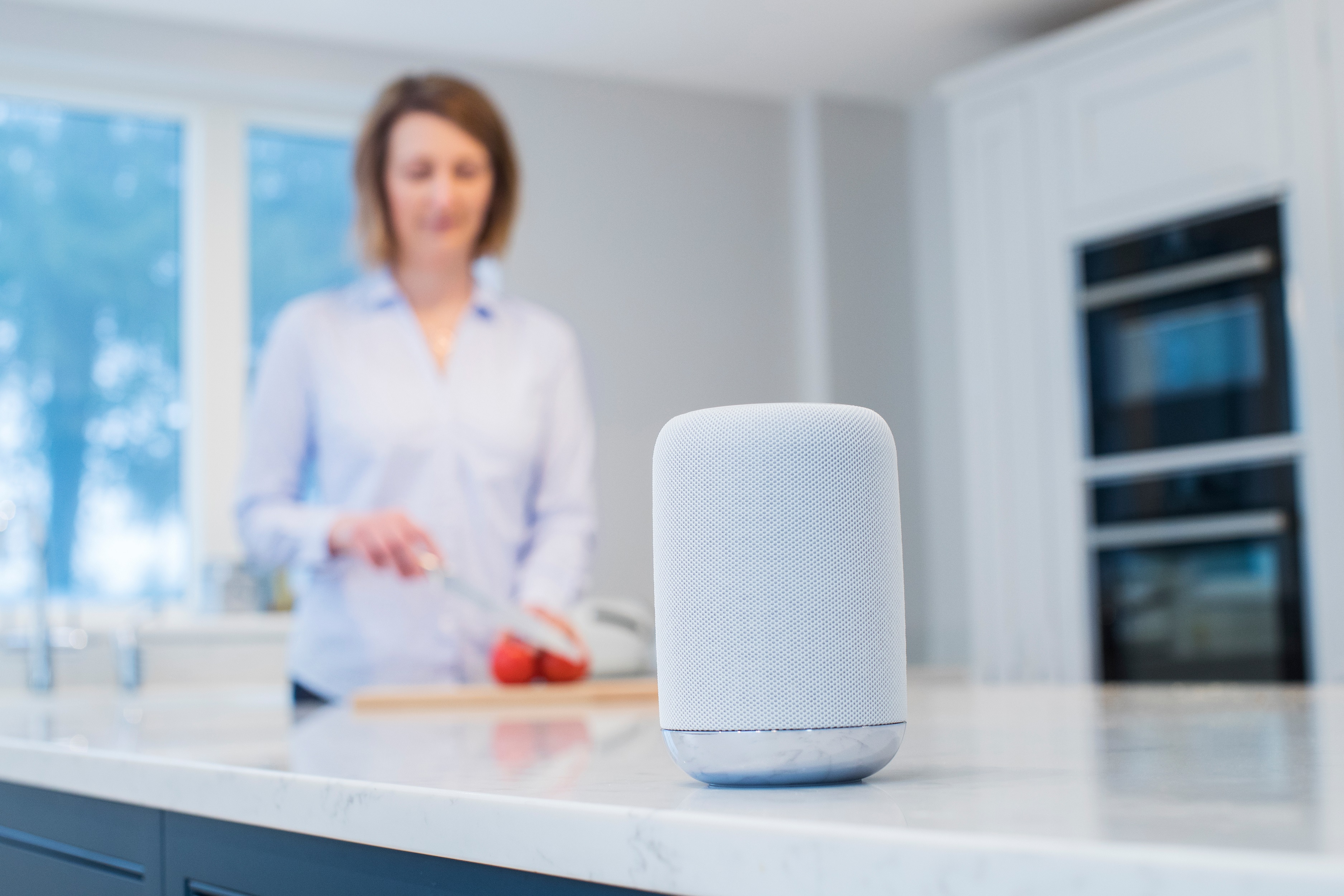
Voice assistants: a stepping-stop to smart homes for all?
Voice assistants are pervading technologies that areprogressively gaining ground in our daily lives. The range of uses and features is diversifying to offer artificial intelligence users an ever-growing number of services: searching online, booking train tickets, shopping online or controlling smart devices can now be voice-operated. Nearly 2 million French people have already installed a smart speaker in their homes[1]; the number of users is constantly growing and, according to estimates, should boom in a near future. What do these new virtual assistants promise?
A greater diversity of usages for all
In 1962, IBM presented the Shoebox to the general public; it was the first device using digital voice recognition and the forerunner of our voice assistants. Nearly 50 years later, Apple included Siri in its iPhone, taking the first step to bringing this technology to the masses. Many phone and computer manufacturers followed suit.
Today, big tech players are launching their respective connected speakers, which are steadily gaining ground in our homes. This market is expected to grow since 72% of people have used a voice assistant at least once, according to auditing firm PwC who conducted the survey.[2]. Voice assistants are mainly used for basic everyday tasks: asking a search engine a question, finding out about the weather, listening to music, or setting an alarm. Thanks to the various partnerships between voice assistants and third-party platforms that allow shopping, ticket booking, and management of home devices, usages are progressively wide-ranging.
Controlling your home using voice commands
Smart objects are increasingly popular: they can be used to manage heating, blinds, lighting, and the security system. However, most of them are still controlled via a smartphone or tablet interface, which may hinder their wider development. In a smart home, everyone must be able to control connected equipment without necessarily having a smartphone or tablet available.
In this perspective, introducing voice controls makes sense for smooth and easy use. Voice assistants are user-friendly and are intended for a wide range of people so that the less tech-savvy can take advantage of connected features. Therefore, a voice assistant offers true added value to homes and are supportive ofoccupants in their daily tasks. A new range of possibilities opens up: turn on the coffee machine and towel warmer in the morning while taking a shower, or switching on the heating system on your way back home. There is a possibility for every daily life situation!
The connected assistant market is expanding quickly, and its growing compatibility with third-party players offer a wide range of possibilities and applications. While everyone is talking about the smart home concept, the combination of voice assistants and smart home solutions should help bring connected homes to everyone.
[1] https://www.lemonde.fr/m-perso/article/2019/03/29/avec-alexa-siri-ou-djingo-la-famille-sous-assistance-artificielle_5443154_4497916.html

